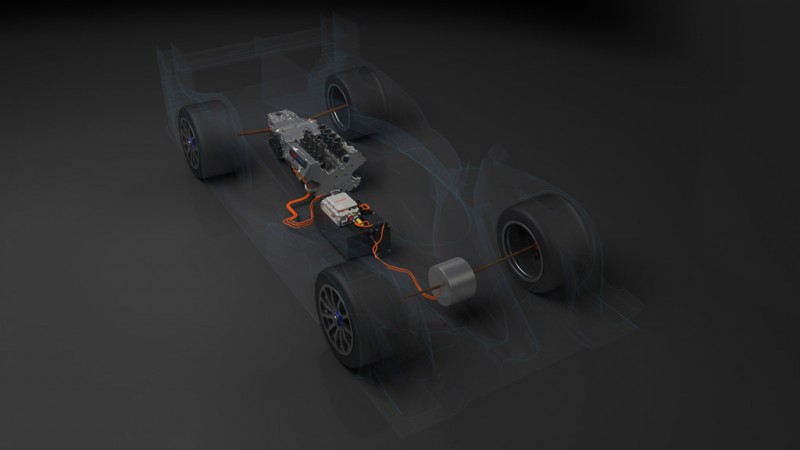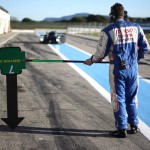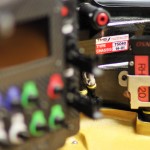Toyota Racing have been hot on Audi’s heels throughout the 2013 FIA World Endurance Championship (WEC) and things are set to get even closer with the new regulations brought in 2014. Toyota plans to push the limits of their hybrid powertrain with their usual sets of drivers; Alex Wurz, Nicolas Lapiere, Kazuki Nakajima, Anthony Davidson, Sébastien Buemi and Stéphane Sarrazin, with a new reserve driver, Mike Conway.
Two cars have been entered for battle in the 2014 season with Le Mans the highlight for the vast majority of racers and fans alike. The Le Mans race organiser, the Automobile Club de l’Ouest, is expected to confirm the full entry list on 13 February.
The TS030 has been resigned to the history books as the new TS040 Hybrid prototype takes the baton. Le Mans and the WEC are in general considered far more ‘road relevant’ than other worldwide championships, including Formula One. In this respect, hybrid technology is now a compulsory element for the race season. Likewise, the endurance racing the cars, and drivers, are put through tests the limits of even the most arduous of technologies and in some ways simulates what is possible for road cars.
 Though many of the hybrids use flywheel technology to assist their internal combustion engines, electric regenerative braking systems are equally common place amongst the race cars of 2014. These systems in effect work the same way as hybrids we see on the roads, though one is tuned for performance and the other economy. That said, economy can play a huge part in winning an endurance race and as such a fine balance must be achieved between performance and fuel consumption.
Though many of the hybrids use flywheel technology to assist their internal combustion engines, electric regenerative braking systems are equally common place amongst the race cars of 2014. These systems in effect work the same way as hybrids we see on the roads, though one is tuned for performance and the other economy. That said, economy can play a huge part in winning an endurance race and as such a fine balance must be achieved between performance and fuel consumption.
New to the car is the addition of an Aisin AW motor/generator on the front axle which is combined with the Denso unit at the rear, as seen on the TS030. Together, the Toyota Hybrid System – Racing – provides all wheel drive which should help car stability and grip while accelerating. Each motor/generator unit gives additional braking power thanks to regeneration when slowing down, the energy from which is passed onto a super capacitor rather than a battery. When accelerating again, the energy transfer is reversed, providing power from the capacitor to the motors to give an instant and significant boost.
At the not so energy efficient end of things, a high performance petrol V8 drives the car in a conventional manner. However, the entire four wheel drive hybrid powertrain has been developed at the Higashifuji technical centre where next generation Toyota road car technology is being tested too. Toyota are keen to push the theory that racing technology can filter into their road going products, making the entire WEC season a relevant testing and marketing tool for them.
Oddly enough, despite the powertrain having been developed in Japan, the chassis of the TS040 has been developed in Cologne by Toyota Motorsport. Hailed as a major evolution of the TS030, the new chassis features advanced aerodynamics and lightweight design. The new car is also narrower by 10cm, due to another new rule for 2014, and comes with Formula One style wheel tethers and a rear crash box as new safety features.
More details about the Toyota TS040 Hybrid racer will be revealed after the initial testing phase on the 28th and 29th March.
Source; Toyota



